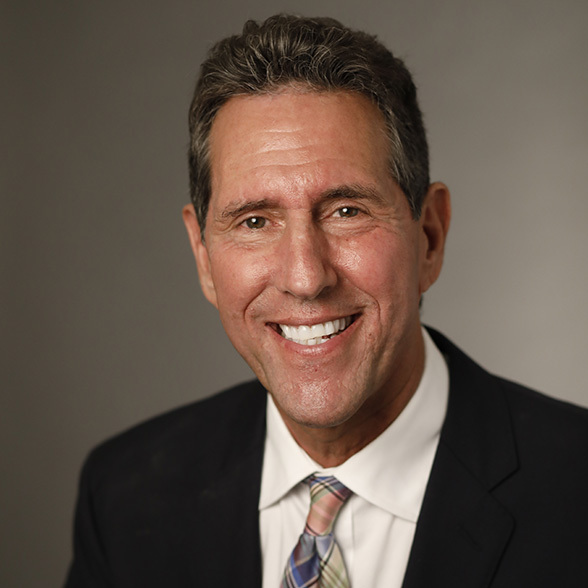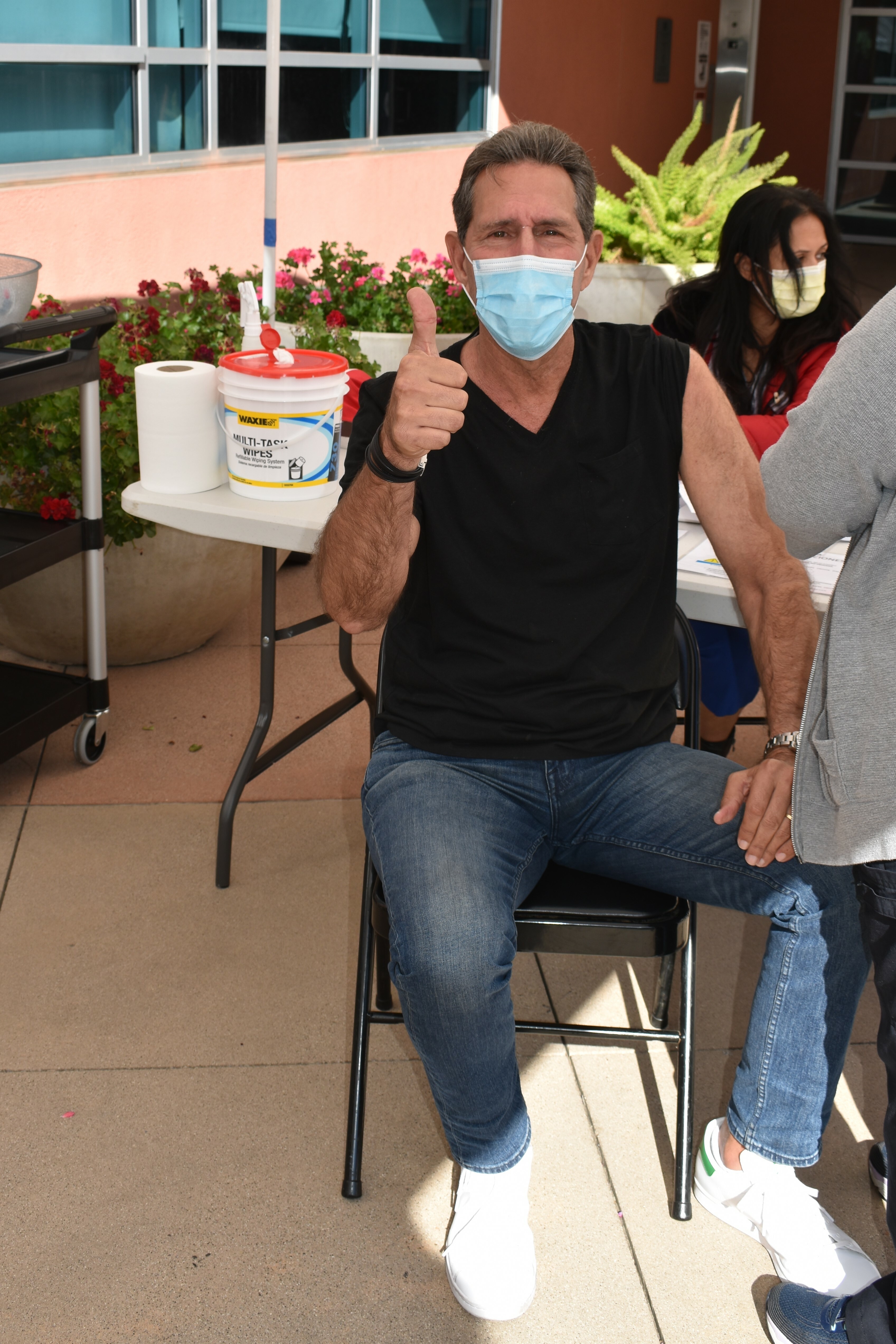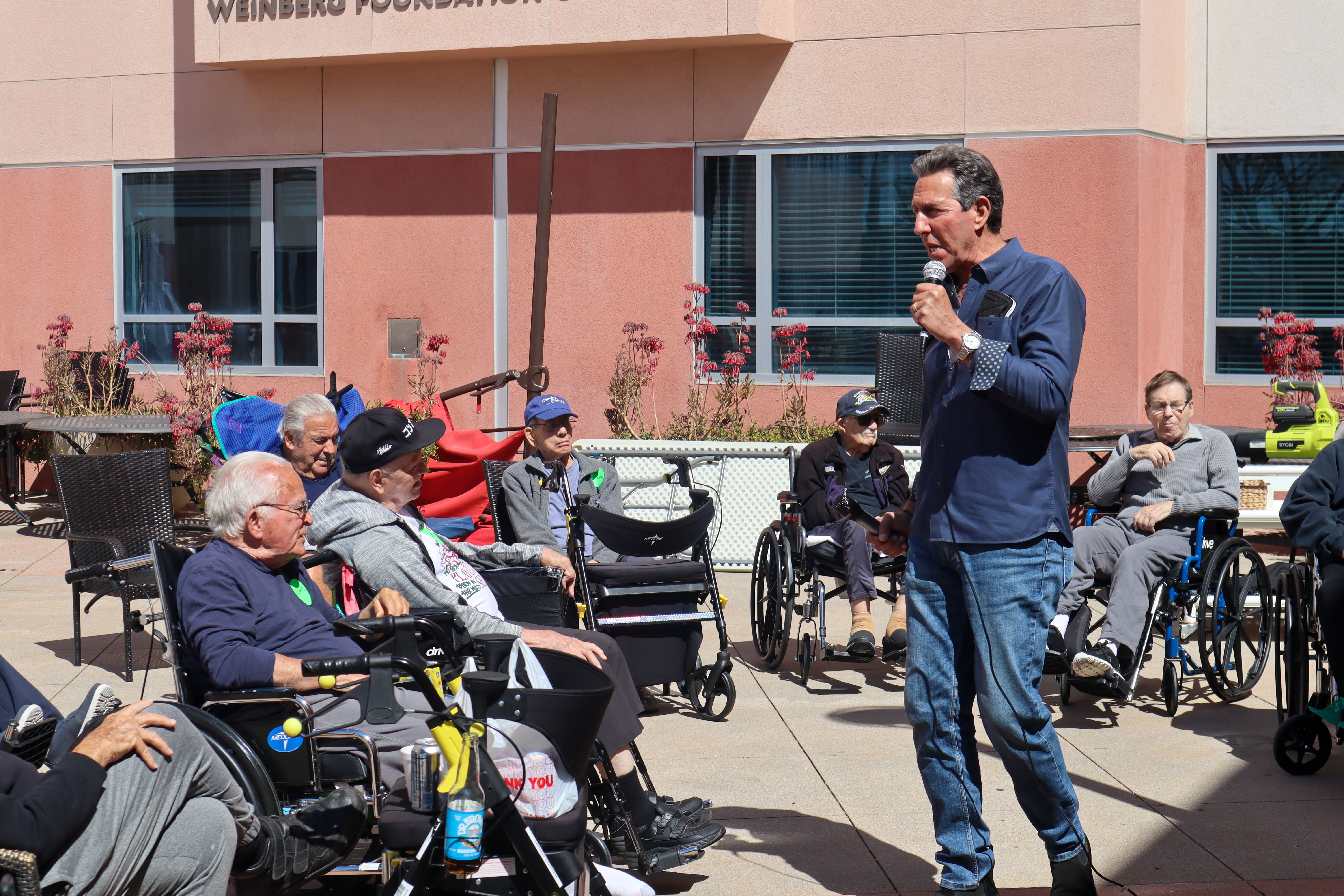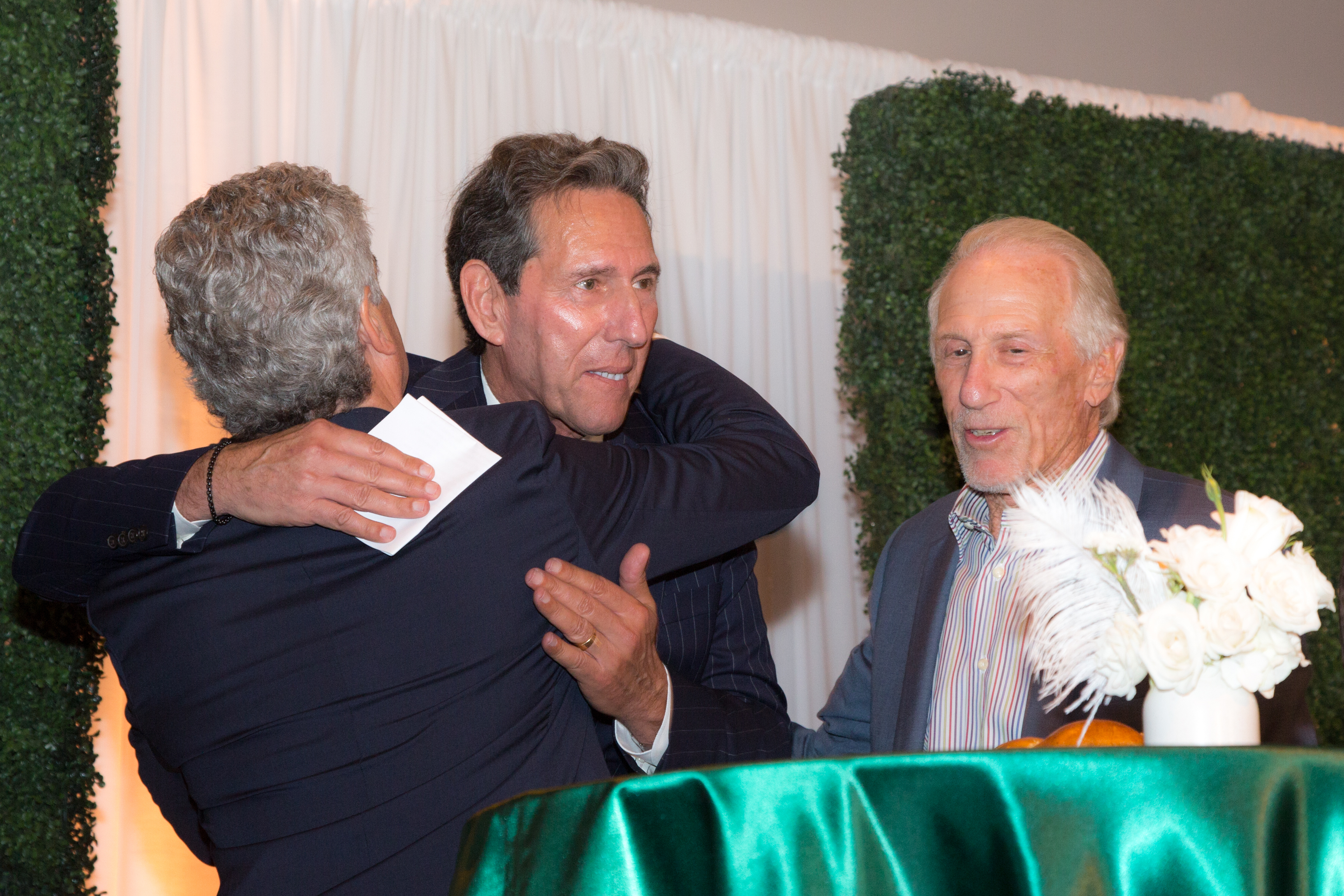Q&A with Outgoing Chair Andrew Berman


Q&A with Outgoing Chair Andrew Berman

As Andrew Berman completes the final of his three two-year terms as Chair of the Los Angeles Jewish Health Board of Directors, we sat down to ask him some questions about his experiences over the past years and his hopes for the future of LAJH:
How, when, and why did you become involved with Los Angeles Jewish Health?
I became involved with LAJH approximately 10 years ago, thanks to friend and fellow Board Member Danny Rosett. At the time, I was serving as president of another nonprofit where Danny also sat on the board. Every time I saw him, he would tell me more wonderful things about LAJH. One day, former CEO-President of LAJH Molly Forrest gave me a tour, and that was it. I was so incredibly impressed. I knew I wanted to get involved to support this great organization dedicated to seniors. I have a deep passion for seniors and want to do everything I can to help in supporting their needs.
When you started this journey with LAJH, did you imagine one day being named chair and also serving for an unprecedented three terms?
At first, I just knew I wanted to participate as a volunteer. However, I really enjoy leadership positions, and I consider myself a good fundraiser and problem solver. As I learned more about the needs and how I could help, I became extremely motivated to lean in and work on the ongoing success and sustainability of this wonderful organization.
What was it like working, first with Molly, and then with Dale as everyone was called upon to navigate successfully through the unprecedented COVID-19 pandemic?
When COVID-19 emerged, we quickly recognized it would take an all-hands-on-deck approach to address this threat to the health of our seniors and our staff. Understanding the devastating toll COVID-19 could have on the elderly, we got out in front of the problem quickly. The executive team and volunteer leadership met and strategized constantly, adjusting plans as needed and doing whatever it took to keep everyone safe. Especially in the early days, you needed to think outside of the box when it came to locating the needed personal protective supplies. For instance, I reached out to several synagogues, and they donated yarmulkes that could be used as facemasks. I also contacted Milken Community School, and they actually used their 3D printers to manufacture needed plastic face shields for us. I am so proud of the job done by everyone at LAJH in keeping our seniors safe throughout the pandemic.
What was your greatest challenge during your time as chair?
There were a few major challenges, including COVID, of course, but I always say it’s easy to lead when it’s the best of times and things are going smoothly. It’s when times are difficult that you must call upon your leadership skills and experience to take on the tough work required in order to reach the goals and results you desire.
What are you most proud of during your three terms?
Again, getting us through COVID, but also being part of the team that hired Dale Surowitz as CEO/president of LAJH. Replacing Molly after her retirement was a monumental task, but we certainly succeeded when we chose Dale as the next CEO. I am also proud of the hard work we did to ensure LAJH is more financially sound to become a stronger organization able to meet the needs of our seniors. Other important work was spearheading the rebranding of LAJH. It was time, and the new name better reflects where we are and where we are going as an organization. It did not come without concern by some at first, because change after so long can be challenging, but life is change.
I am so proud to have served as an ambassador of LAJH, participating in many of the events and functions over the years. And I’m pleased we have made progress with those who are becoming involved in volunteer leadership roles. We have diversified the board, focusing on more intergenerational membership, and I am so proud to be passing the chair of the board baton to Judy Freidman-Rudzki, who I believe will only be the second woman chair in our history.
What words of advice do you have for Judy Friedman-Rudzki as she takes the torch for LAJH?
Be a great ambassador for the organization and be an inspirational and motivational leader. Lead with integrity, passion, and complete transparency. Don’t do what may be the popular thing; do what you feel is the right thing.
Do you plan to stay involved with LAJH moving forward?
Yes, of course. I will always be a volunteer. Specifically, in addition to my role as immediate past chair of the board, I am serving as endowment co-chair along with Dick Ziman and Jeff Glassman. In addition, I will serve as Co-chair of Generation to Generation (G2G), a donor support group. I will also continue leading my weekly gathering of the men’s discussion group from the Joyce Eisenberg-Keefer Medical Center. Each week, we meet in the courtyard and talk about current events and other stimulating topics. It’s always great to hear from those who have blazed the trail for all of us.
If you had one wish for Los Angeles Jewish Health, what would it be?
My greatest wish would be to establish a very healthy endowment fund. To continue to ensure long-term success and sustainability, we must have a healthy endowment. It is important that we have this financial cushion because it takes the weight off us as we continuously work to meet the needs of a rapidly growing senior population who will rely on us in even greater numbers in the future.
I believe in this organization, in fact, I call it my passion. I see the results of everyone’s hard work and dedication every time I visit the campus.


